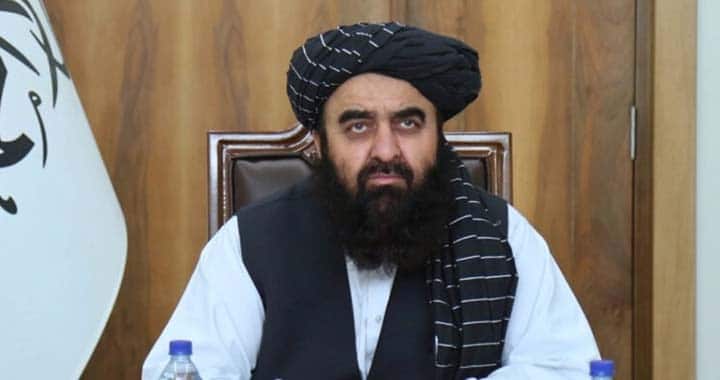The United Nations Security Council has granted a travel exemption to Amir Khan Mottaqi, the Taliban’s acting foreign minister, permitting him to visit New Delhi from October 9 to 16 despite his inclusion on the UN sanctions list for terrorism and extremist links.
The decision, announced on September 30 by the Security Council’s 1988 Sanctions Committee, has raised questions over the normalization of a regime internationally condemned for its brutality, repression, and ties to terrorist networks. Mottaqi, like other senior Taliban leaders, remains under sanctions that include an asset freeze, arms embargo, and global travel ban.
Analysts warn that India’s decision to host the Taliban risks emboldening a group that has systematically stripped Afghan women and girls of their rights, carried out reprisals against civilians, and continued to provide safe havens to terrorist organizations threatening regional stability. Since its takeover in August 2021, the Taliban has presided over what human rights groups describe as one of the world’s harshest regimes, marked by executions, censorship, and the suppression of basic freedoms.
Critics say India’s engagement with the Taliban underscores a troubling willingness to prioritize geopolitical maneuvering over human rights and counterterrorism commitments. While New Delhi has previously limited its dealings with the group to humanitarian aid and technical contacts, Mottaqi’s visit represents a step toward greater recognition of a regime that remains under global sanctions for terrorism.
The exemption for Mottaqi follows similar concessions granted to other Taliban officials, including Abdul Salam Hanafi’s trip to Doha for medical treatment in August and Khairullah Khairkhwah’s visit to Moscow in July. However, in early August, Mottaqi was denied clearance to travel to Pakistan a decision seen as an acknowledgment of the risks posed by legitimizing Taliban leaders’ international presence.
Observers argue that India’s invitation, coming at a time when the Taliban continue to harbor extremist groups and crush dissent, sends a dangerous signal to the Afghan people and the international community. They warn that such diplomatic openings may inadvertently strengthen a pariah regime while undermining global counterterrorism efforts.
The Taliban remain under a UN sanctions regime first imposed in 1999 due to their support for al-Qaeda and other terrorist organizations, and later updated in 2011. Exemptions are only granted on a case-by-case basis and require unanimous approval by the Council’s sanctions committee.





